Industry experts talked about how consumers would benefit from the liberalization of fuel prices in Colombia.
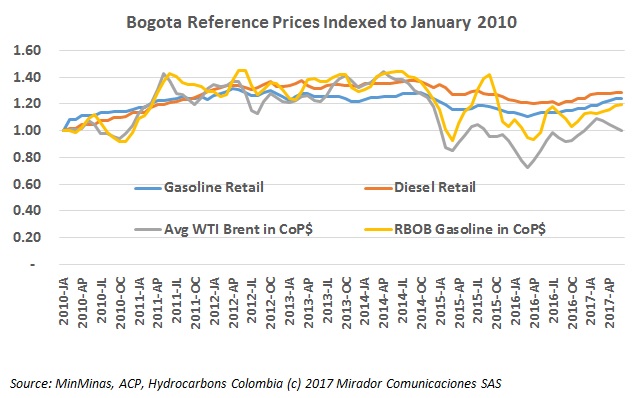
The Comptroller General proposed changing the gasoline price policy in the country. It generated an interesting discussion.

Despite assurances that Reficar is now “practically” online, refining volume dropped at the NOC’s flagship facility for the second straight quarter.
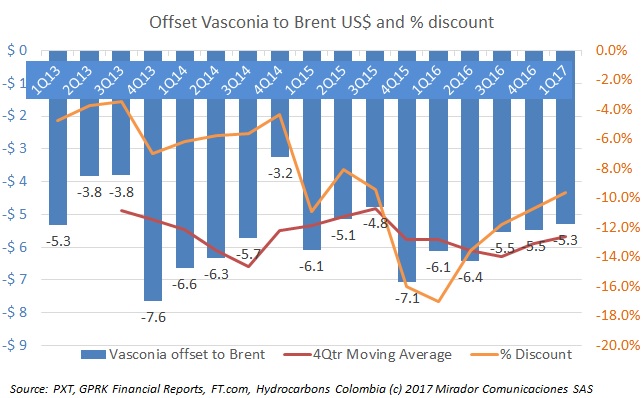
Vasconia is perhaps Colombia’s most ‘emblematic’ crude oil blend and last quarter the discount fell again, reducing the gap to Brent.
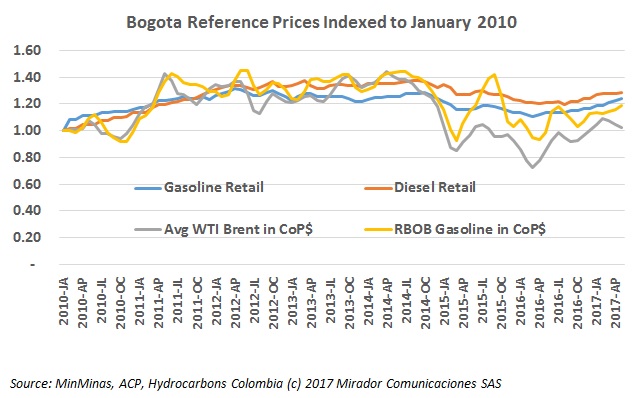
The Ministry of Mines and Energy announced a new rise in the fuel prices in the country. It has grown consistently since January this year.
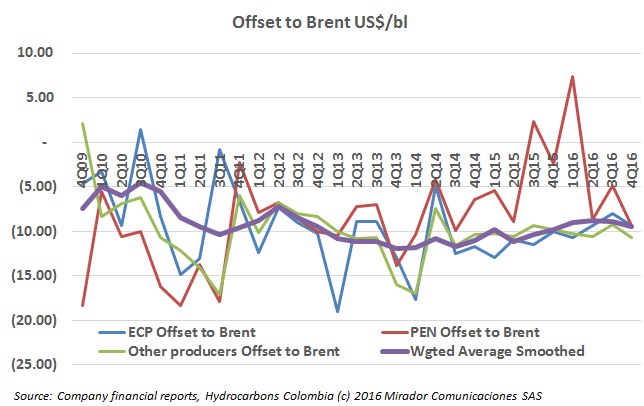
Last year was difficult for the sector because of the continued oil price decline. The industry had to adapt to this environment and learn to operate with the lowest price in 12 years.
Valle del Cauca business associations defended the construction of the Pacific coast regasification plant because according to them, is an important competitiveness element for Colombia.
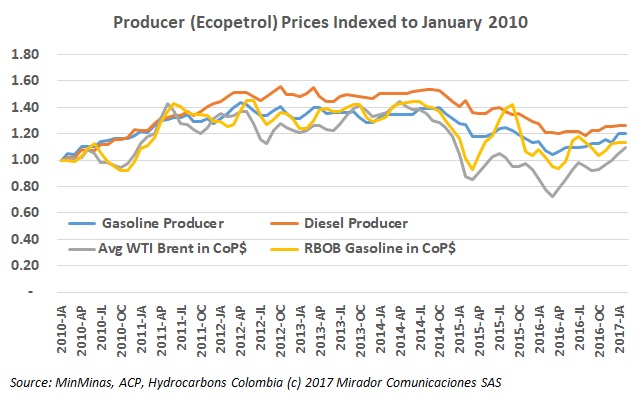
The graph shows fuel producer prices – what Ecopetrol (NYSE:EC) receives – which are unaffected by the so-called “Green Tax”. We think the graph shows Colombians are still paying too much although the gap has reduced somewhat.
Germán Castro, Executive Director of the Energy and Gas Regulatory Commission (CREG) spoke about regasification plants in Colombia, the government’s priorities and the sector’s perspectives on this.
Alejandro Martínez Villegas, President of the propane distribution association (Gasnova), is optimistic about the future of propane in the country. He mentioned that the construction of the new plant in Cartagena is vital to guarantee supply.